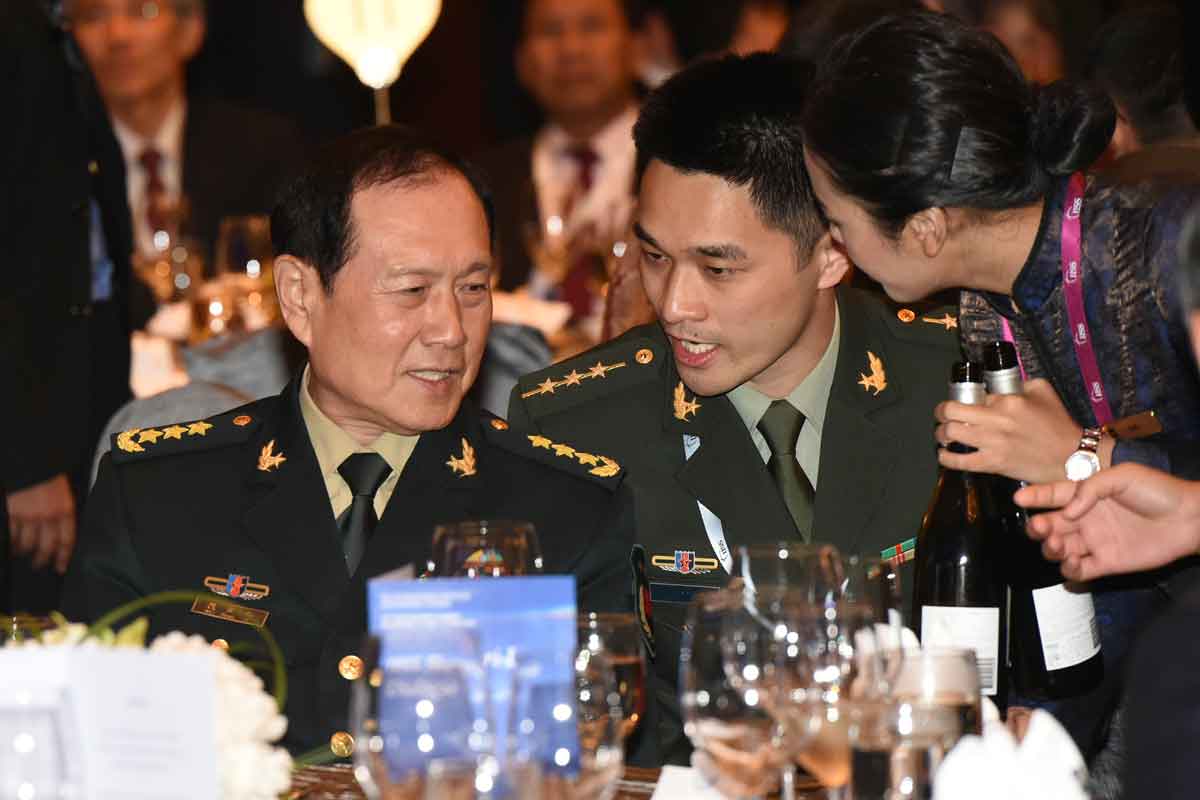Beijing warned Friday that the United States (US) should not underestimate China's military as the top defence officials from both countries met on the side-lines of a security forum.
As Beijing and Washington vie for influence in a region hosting potential flashpoints such as the South China Sea, Korean Peninsula and the Taiwan Strait, acting US Defense Secretary Patrick Shanahan met Chinese Defence Minister General Wei Fenghe for 20 minutes Friday.
Chinese defence ministry spokesman Wu Qian said they "reached some consensus" on issues of common concern, adding that Wei "particularly emphasised the Taiwan issue".
China sees Taiwan as part of its territory to be reunified, despite the two sides having being ruled separately since the end of a civil war on the mainland in 1949.
Beijing is regularly angered by US warships transiting through the Taiwan Strait, which it considers its territorial waters.
"He (Defence minister Wei) pointed out that the US has recently had a series of negative words and actions on this issue", Wu said, adding that Beijing was "firmly opposed" to this.
"On the issue of safeguarding national sovereignty and territorial integrity, the US should not underestimate the determination, will and ability of the Chinese military."
Shanahan spokesman Joe Buccino told reporters the meeting was "constructive and productive".
Risk of misunderstanding
"The two leaders discussed ways to build military-to-military relations that reduce the risk of misunderstanding and miscalculation between our nations," he said.
Washington has been pushing back against Beijing’s militarisation of the South China Sea, and ahead of Friday's meeting Shanahan told reporters that facilities China was building on reclaimed land in the South China Sea appeared to be an "overkill" if they were purely defensive.
"I mean surface-to-air missiles, long runways... Seems excessive," Shanahan said.
A top US general said earlier this week that Chinese President Xi Jinping had reneged on promises by building "10,000-foot runways, ammunition storage facilities, routine deployment of missile defense capabilities, aviation capabilities" on reclaimed land.
Wei’s attendance at the Shangri-La Dialogue – an annual gathering of global defence officials organised by the International Institute for Strategic Studies think-tank – is being taken as a sign that China is not backing away from the dispute.
"The Chinese want to be here to say their side of the story," Shawn Ho, associate research fellow at the S. Rajaratnam School of International Studies in Singapore said.
"Definitively, we are seeing more competition between the US and China... not just traditional fields, but also in technology... and I think this is something that we have to watch very carefully," Ho said.
Singapore Prime Minister Lee Hsien Loong said in a keynote speech to the gathering Friday evening the US-China bilateral relationship "is the most important in the world today", urging them to work together.
"Even short of outright conflict, a prolonged period of tension and uncertainty will be extremely damaging," he warned, adding that serious international problems would not be addressed without the full participation of both powers.
Shanahan is expected to flesh out Washington's strategy in the Pacific region, where both the US and China are vying for influence, during a talk on Saturday.
Wei will address the conference on Sunday, with a source from his delegation saying the speech will outline China's role in global security and US-China ties – as well as addressing the territorial disputes in the South China Sea.
"The 'China threat' is a non-existent issue. We are here to correct that misconception," added the source, who did not want to be named. - AFP
